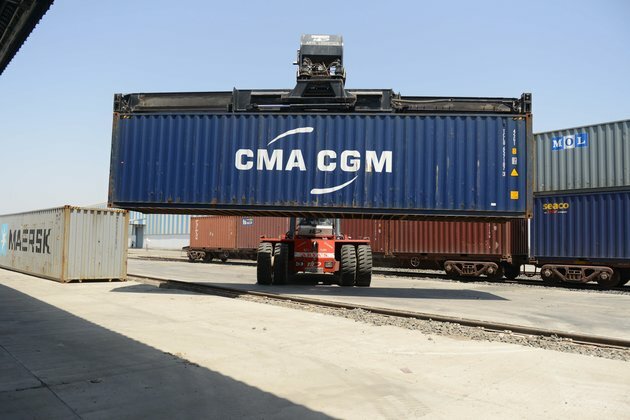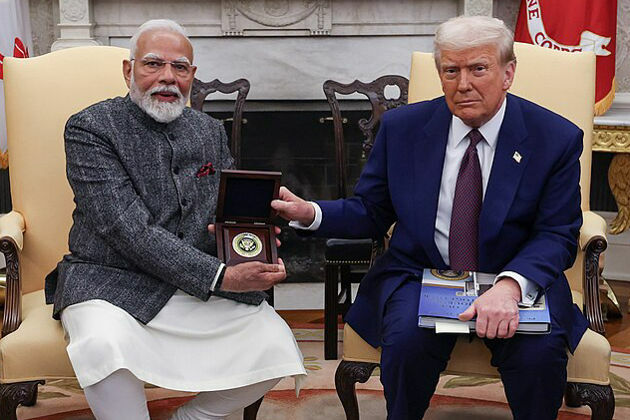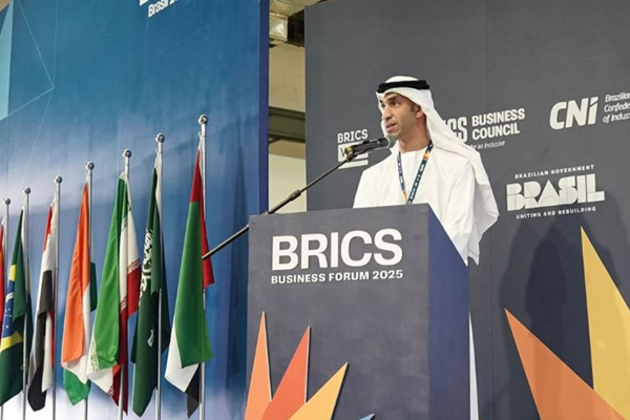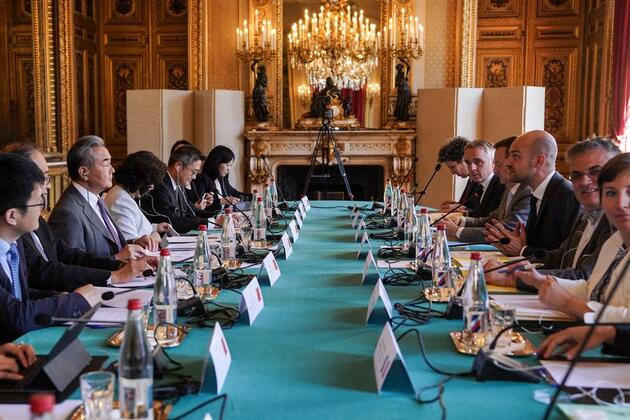India's Pullout Deals Setback to Asia-Pacific Nations' Trade Talks
Voice of America
09 Nov 2019, 03:35 GMT+10

Officials in more than a dozen Asian and Pacific nations are struggling to move forward with a major regional trade pact, days after India announced that it was not willing to sign on.
The news threw the future of the Regional Comprehensive Economic Partnership, a deal seven years in the making and now involving 15 nations, into serious doubt, even as negotiators insisted that the agreement was still viable.
The pact, known as RCEP, would include the 10 members of the Association of Southeast Asian Nations other than India (Malaysia, Brunei, Cambodia, Vietnam, Indonesia, Singapore, Laos, Thailand, Philippines and Myanmar) as well as China, Japan, South Korea, Australia and New Zealand.
As trade pacts go, RCEP can be seen as very wide, though perhaps not particularly deep. With Indian participation, it would have covered countries with more than half of the world's population and about one-third of its economic output. However, even with the final details of the proposed agreement still under discussion, it is clear that compared with other major free trade deals, RCEP is far less ambitious.
"On paper, it's bigger but generally regarded as a much less ambitious agreement than most," said William Reinsch, a senior adviser and holder of the Scholl Chair in International Business at the Center for Strategic and International Studies in Washington. "It's not going to be full free trade. There's going to be lots of exceptions. Lots of things are not going to be covered."
The deal also says nothing about workers' rights or liberalizing economic policies in countries - like China - that give domestic firms regulatory forbearance and financial assistance that most developed Western economies believe translate into unfair competitive advantages.
When Indian Prime Minister Narendra Modi announced Monday that his country would not be a party to the deal, he cited his reluctance to expose his domestic businesses to cheap Chinese imports and the lack of specific provisions in the draft agreement on trade in services. Modi's decision came after years of negotiations in which India was frequently the lone holdout on elements of the agreement supported by the remaining participants.
Complications
India's decision to step away from the deal complicates matters in multiple ways.
From a purely practical standpoint, India is one of the largest economies in the region and has historically been very reluctant to allow foreign competitors to sell products in its domestic markets. The lure of access to India's 1.4 billion consumers was a major driver of interest in the deal, making it attractive to countries like Japan, Australia, Singapore, New Zealand, Brunei, Malaysia and Vietnam, which already have free trade agreements with each other through participation in the Comprehensive and Progressive Agreement for Trans-Pacific Partnership (CPTPP).
However, while he called India's decision "disappointing" and said that the "door remains firmly open" to its future participation in the agreement, Australian Trade, Tourism and Investment Minister Simon Birmingham insisted in an interview with Bloomberg this week that RCEP "still remains very commercially viable and beneficial."
From a political standpoint, India's exit from the treaty makes China, already the largest economy involved in the deal by a large margin, even more of a dominant player in the negotiations.
"There's concern that in the absence of India, it's going to be perceived as too much of a Chinese agreement," said Reinsch. "It will basically be China and a whole bunch of smaller economies. People would like to have India in the mix as a sort of counterweight."
U.S. perspective
Meanwhile, free trade advocates in the U.S. are watching in frustration. Regardless of whether the deal is ultimately successful, the fact that it is China and not the U.S. that is spearheading the push for a regional agreement is seen by many as an abdication of America's global influence.
The current debate about RCEP comes less than three years after President Donald Trump began his first term with the announcement that the U.S. would be pulling out of the Trans-Pacific Partnership, the expansive trade deal brokered by the U.S., which ultimately became the CPTPP.
"From a U.S. perspective, it's just tremendously disappointing to be looking at it from the outside as CPTPP and now RCEP get concluded," said Jake Colvin, vice president for global trade and innovation at the National Foreign Trade Council in Washington. "From a U.S. business perspective, it's frustrating not to be part of these kinds of regional deals, which are as much political as economic."
Colvin added, "The reality is that TPP was always as much of a political as an economic agreement for the United States. And I think the same holds true for RCEP. This is great optics for China. They get to tout their contribution to supporting an open-rules-based trading system, and then still get to keep some of their discriminatory practices that freeze out many of the companies that we represent."
 Share
Share
 Tweet
Tweet
 Share
Share
 Flip
Flip
 Email
Email
Watch latest videos
Subscribe and Follow
Get a daily dose of Malaysia Sun news through our daily email, its complimentary and keeps you fully up to date with world and business news as well.
News RELEASES
Publish news of your business, community or sports group, personnel appointments, major event and more by submitting a news release to Malaysia Sun.
More InformationSoutheast Asia
SectionTrump signals progress on India Trade, criticizes Japan stance
WASHINGTON, D.C.: President Donald Trump says the United States could soon reach a trade deal with India. He believes this deal would...
UN Demands End to Myanmar Violence as Junta’s Election Plans Risk Further Instability
Nearly three months after a devastating earthquake struck Myanmar, the country remains trapped in a deepening crisis, compounded by...
UAE highlights potential of deeper trade, investment collaboration between BRICS nations
Rio de Janeiro [Brazil] July 6 (ANI/WAM): The United Arab Emirates, represented by Thani bin Ahmed Al Zeyoudi, Minister of Foreign...
Daily World Briefing, July 6
Chinese FM urges China, France to uphold multilateralism, rules of free trade China and France should champion multilateralism and...
"Big crowd, lot of expectations, he has handled it very well...": Indian bowling coach on Gill's masterclass
Birmingham [UK], July 6 (ANI): Indian bowling coach Morne Morkel hailed skipper Shubman Gill after a record-breaking outing at Birmingham,...
"Thought I could throw better...": Neeraj after winning the inaugural NC Classic
Bengaluru (Karnataka) [India], July 5 (ANI): Following his win at the inaugural NC Classic at Bengaluru, India's world champion and...
Business
SectionMeta hires SSI CEO Gross as AI race intensifies among tech giants
PALO ALTO/TEL AVIV: The battle for top AI talent has claimed another high-profile casualty—this time at Safe Superintelligence (SSI),...
Engine defect prompts Nissan to recall over 443,000 vehicles
FRANKLIN, Tennessee: Hundreds of thousands of Nissan and Infiniti vehicles are being recalled across the United States due to a potential...
Microsoft trims jobs to manage soaring AI infrastructure costs
REDMOND, Washington: Microsoft is the latest tech giant to announce significant job cuts, as the financial strain of building next-generation...
Stocks worldwide struggle to make ground Friday with Wall Street closed
LONDON UK - U.S. stock markets were closed on Friday for Independence Day. Global Forex Markets Wrap Up Friday with Greeback Comeback...
Nvidia briefly tops Apple’s record in AI-fueled stock rally
SANTA CLARA, California: Nvidia came within a whisker of making financial history on July 3, briefly surpassing Apple's all-time market...
ICE raids leave crops rotting in California, farmers fear collapse
SACRAMENTO, California: California's multibillion-dollar farms are facing a growing crisis—not from drought or pests, but from a sudden...













